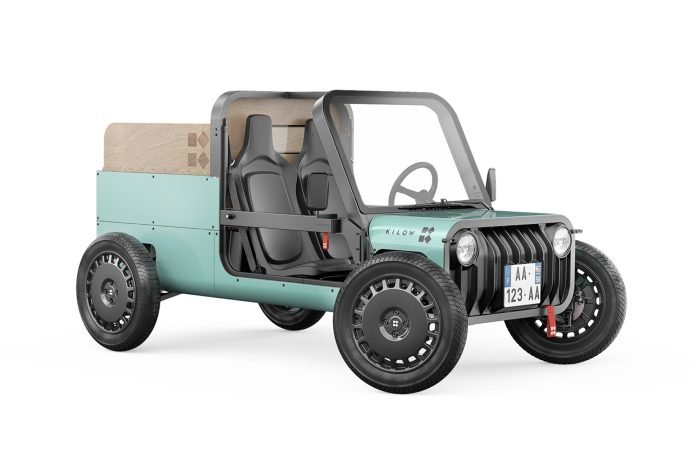La Bagnole, developed by French company Kilow, is a compact electric vehicle designed with a deliberately stripped-down aesthetic and functional off-road capability. It’s marketed not as a futuristic smart car packed with features, but as a utilitarian, lightweight vehicle focused on simplicity, durability, and enjoyment.
According to Kilow, the vehicle is “stripped of frills and gadgets” and designed to “break free from the conventions of modern automobiles.” It is described as “practical, economical, robust, but above all, fun.”
Designed for utility and play
La Bagnole seats two passengers and features a steel chassis with a galvanized steel double-wishbone suspension. With a curb weight of just 350 kg, the vehicle is exceptionally light, which contributes to its agility on various terrains. Its compact footprint and 15-inch ground clearance support modest off-road usage, making it suitable for country roads, trails, and rural settings. However, it’s not positioned as a hardcore off-roader—it’s more of a light recreational or utility vehicle.
Driving performance is handled by two rear-mounted brushless electric motors, delivering a combined power output of 15 kW (approximately 20 horsepower). This allows the vehicle to reach a top speed of 80 km/h (about 50 mph), which is adequate for local driving in both rural and semi-urban areas.
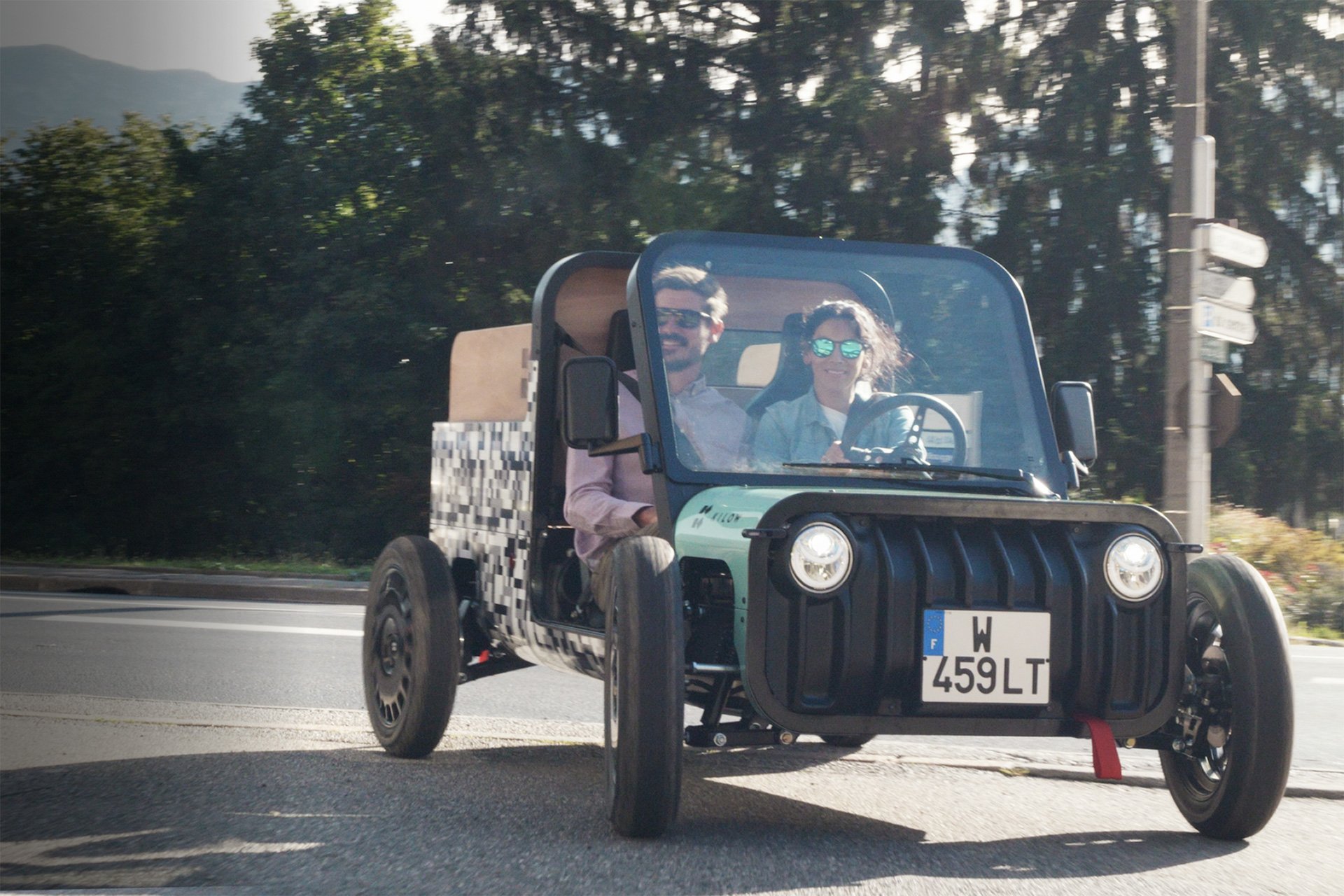
Battery and range options
Buyers can choose between two battery configurations: a 6 kWh standard pack or an optional 12 kWh upgrade. The 6 kWh battery delivers an estimated range of 70 km (43 miles), while the 12 kWh option extends that to roughly 140 km (87 miles). The battery system is designed to be repairable and replaceable, reinforcing the brand’s emphasis on sustainability and long-term use.
Charging is conducted via a standard domestic outlet, and while fast-charging is not part of the offering, Kilow seems to be targeting simplicity and accessibility rather than high-speed refueling.
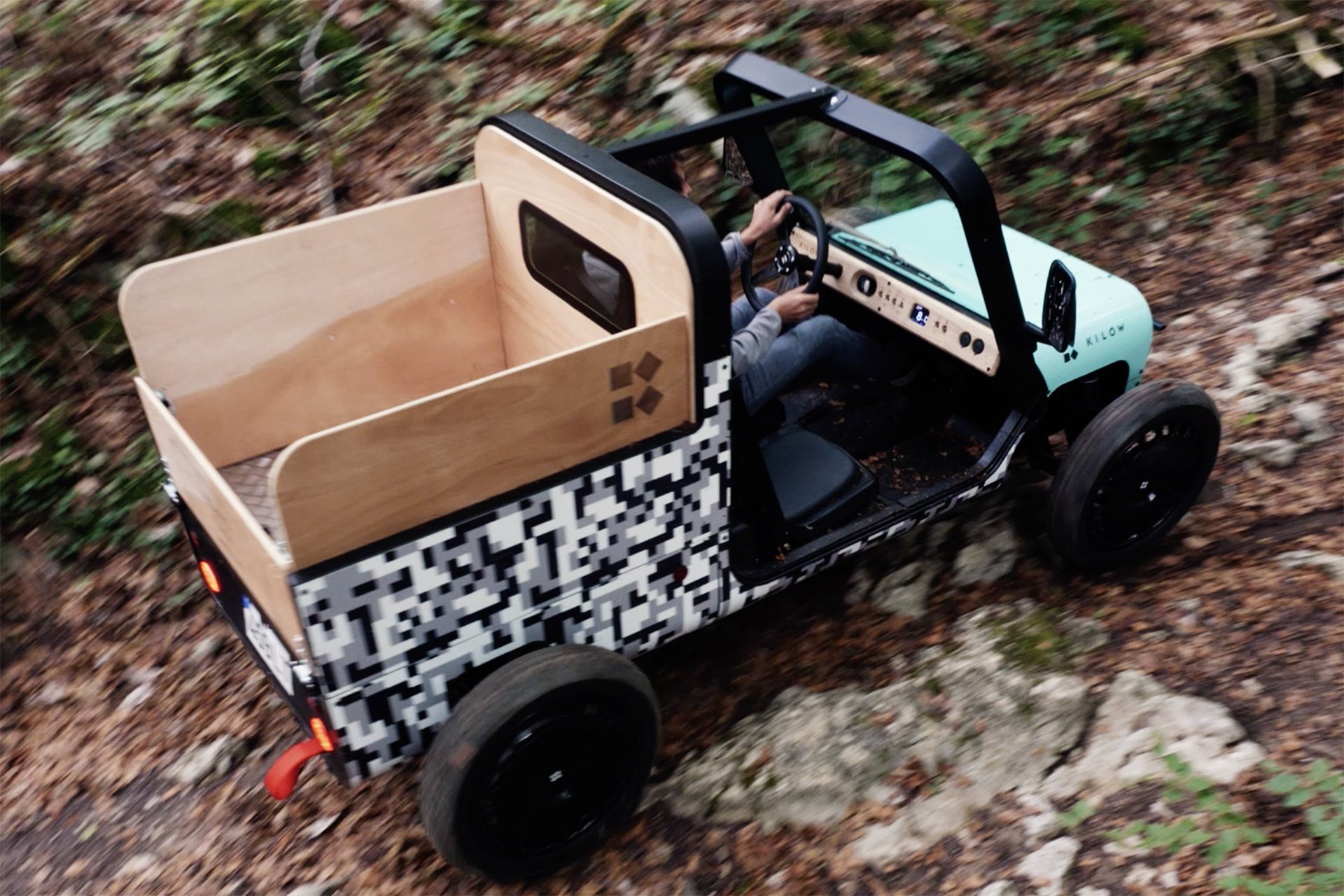
Driving license requirements and versions
La Bagnole is available in two configurations aligned with European quadricycle regulations: L6e and L7e. The L6e version, classified as a light quadricycle, can be driven in France without a standard driver’s license—appealing to younger users or those without full licenses. The L7e version, considered a heavy quadricycle, requires a standard driving license and comes with a higher power limit.
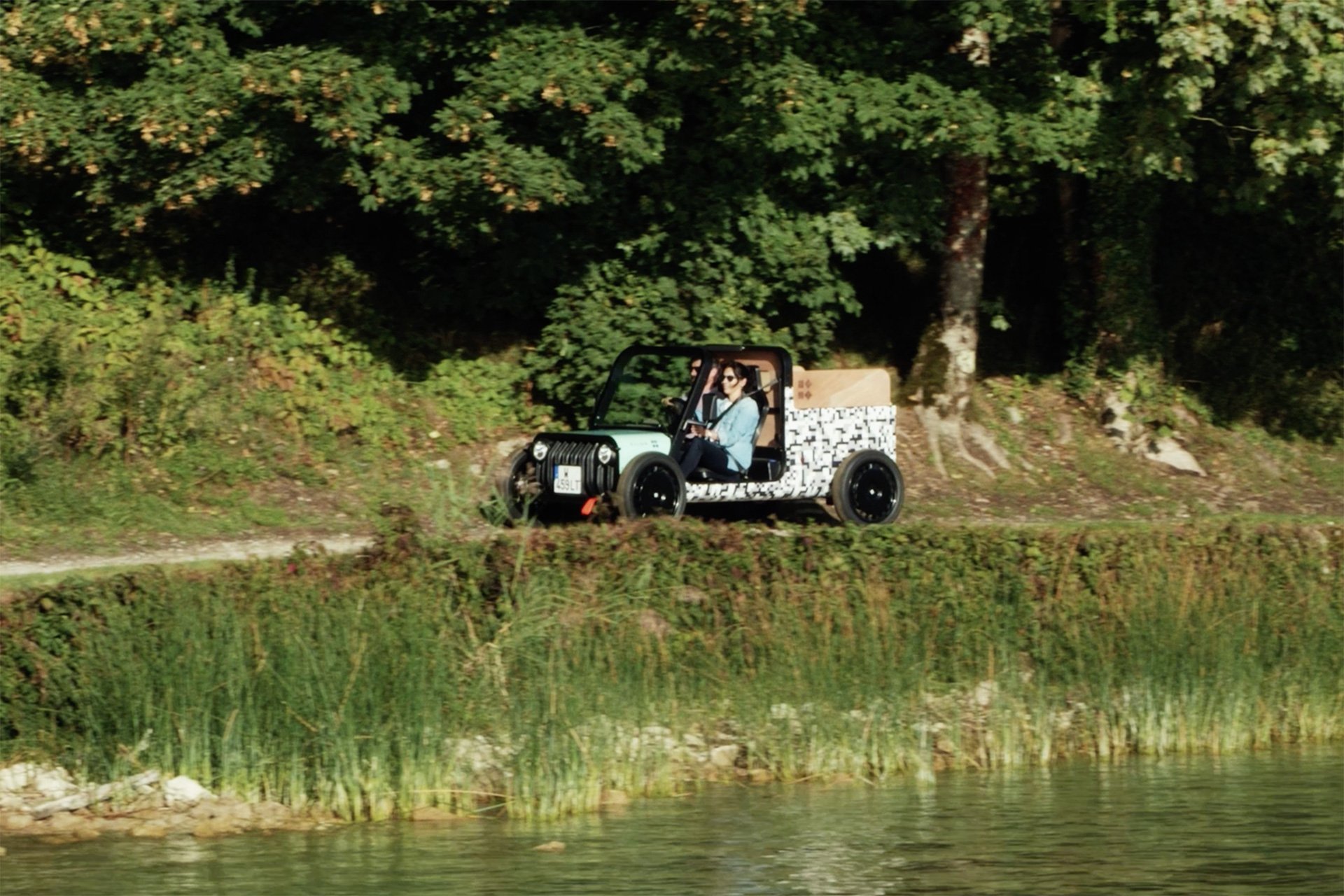
This bifurcation broadens the vehicle’s appeal, allowing it to serve as a second car for households, a utility vehicle on private property, or a transport option for individuals not licensed to operate full-size cars.
Minimalist interior and cargo options
The interior of La Bagnole reflects its overall design philosophy. The dashboard is made from solid wood, controls are kept to the essentials, and digital displays are minimal. There’s no air conditioning, touchscreen, or complex infotainment system. This aligns with the brand’s intent to keep the vehicle straightforward and easy to maintain.
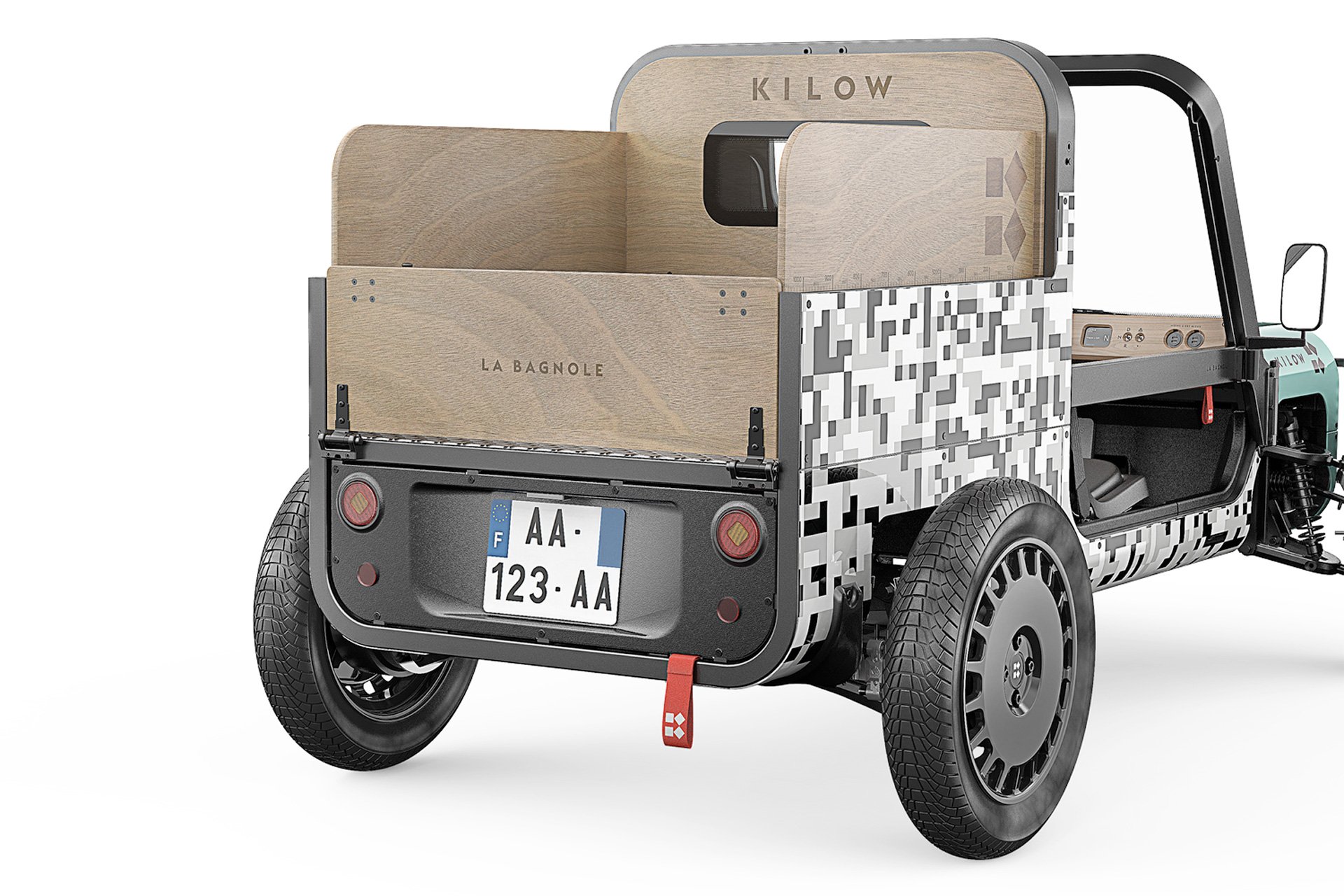
Cargo space is modular and can be customized. The rear of the vehicle can accommodate various setups including lockable boxes, insulated containers, or open storage beds depending on user needs. This makes it a potential fit for small-scale farmers, rural delivery services, or recreational users carrying outdoor gear.
Manufacturing and pricing
La Bagnole is designed and assembled entirely in France, with Kilow emphasizing the use of local materials and processes. The company states that keeping manufacturing local is part of its strategy to reduce environmental impact and ensure high production standards.
The starting price for La Bagnole is listed at €10,800 (around $11,700 USD), with an initial deposit of €990 (about $1,070 USD) required to reserve a unit. According to Kilow, this deposit is “fully refundable at any time.” Given its focus on simplicity and affordability, the price point is relatively accessible for a niche electric vehicle.
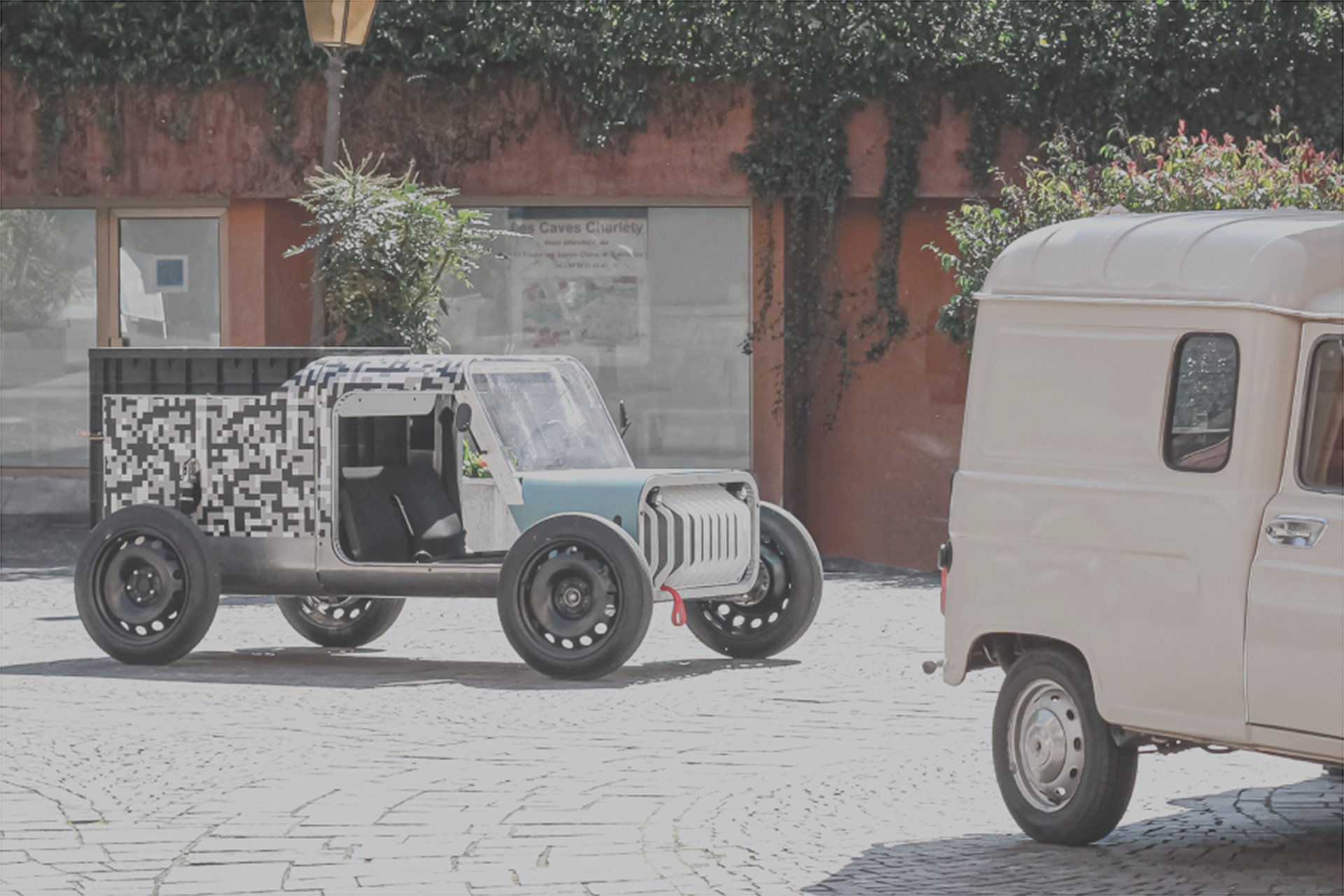
La Bagnole is not trying to compete with premium EVs or urban electric cars with long range and high-end features. Instead, it carves out its own identity as a lightweight, playful, and utilitarian option for short-range transport—especially in environments where roads may be less than perfect. With its dual-motor layout, optional extended battery, and basic design, it offers an alternative to people looking for a no-fuss electric driving experience.
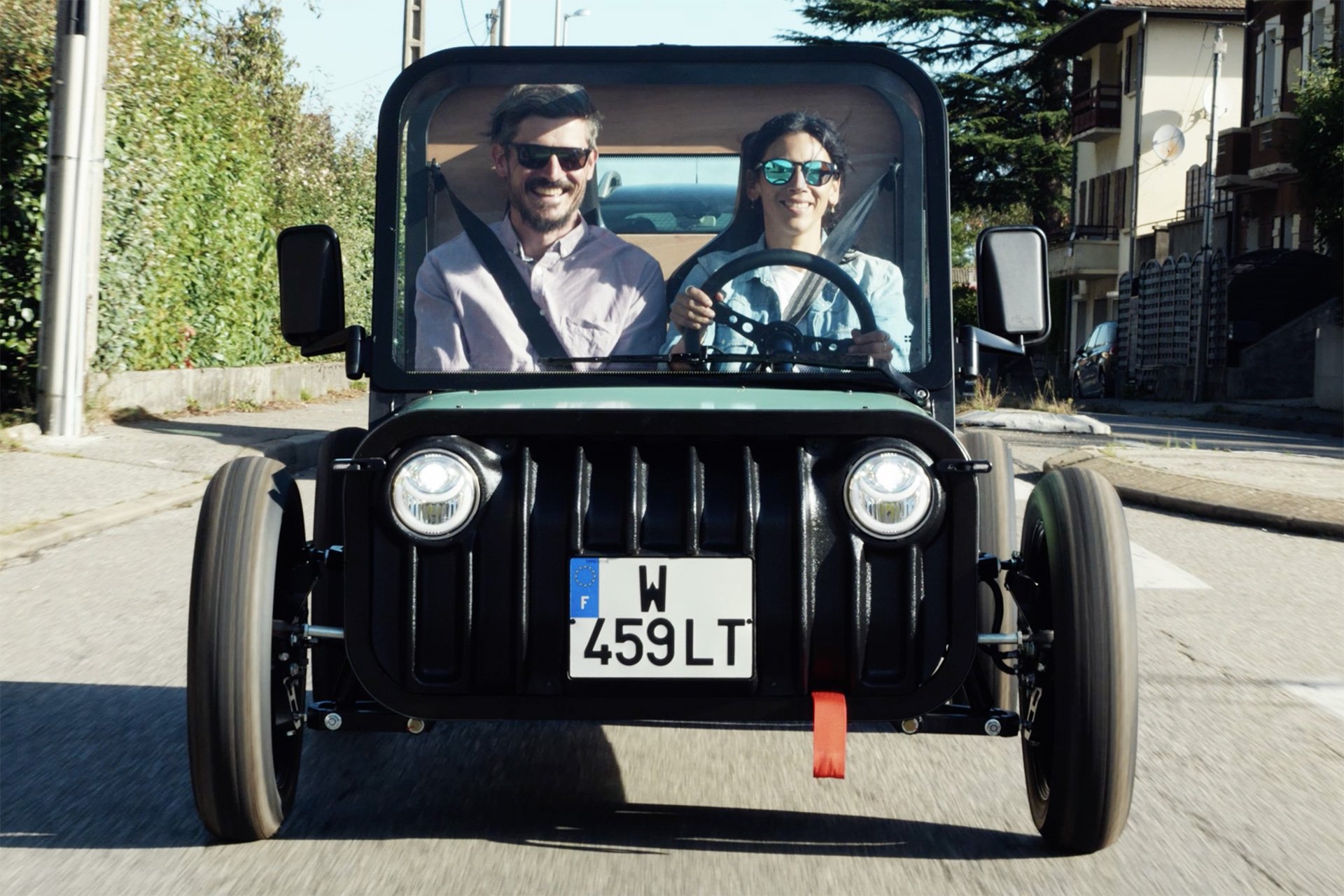
Source: Kilow

